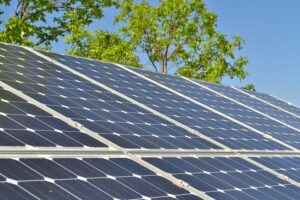
The default source of electricity has traditionally been from the national grid, generated from a range of fossil fuels, including coal, natural gas and oil.
Save £100s Each Year With A Home Solar & Heat Pump Package
GOV.UK
Up to £40,000 in Free Grants to revolutionise your home energy
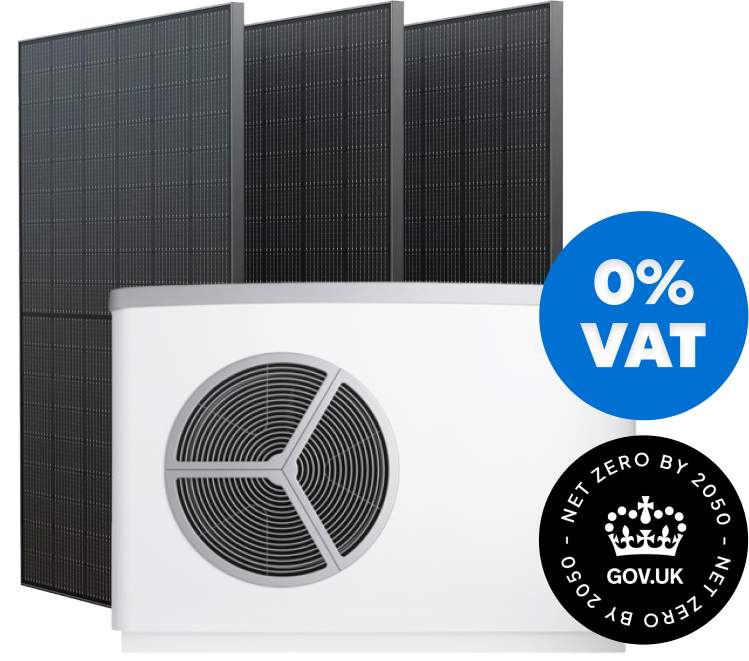
Our Partners:






GOV.UK
Government-funded grants are available to eligible candidates throughout the UK.
Fill out our quick 60 second form to check if you qualify & get started.

Enter Your Details

Book Your Free Survey

Measures Installed

Save On Energy Bills
You don’t need to be receiving benefits!
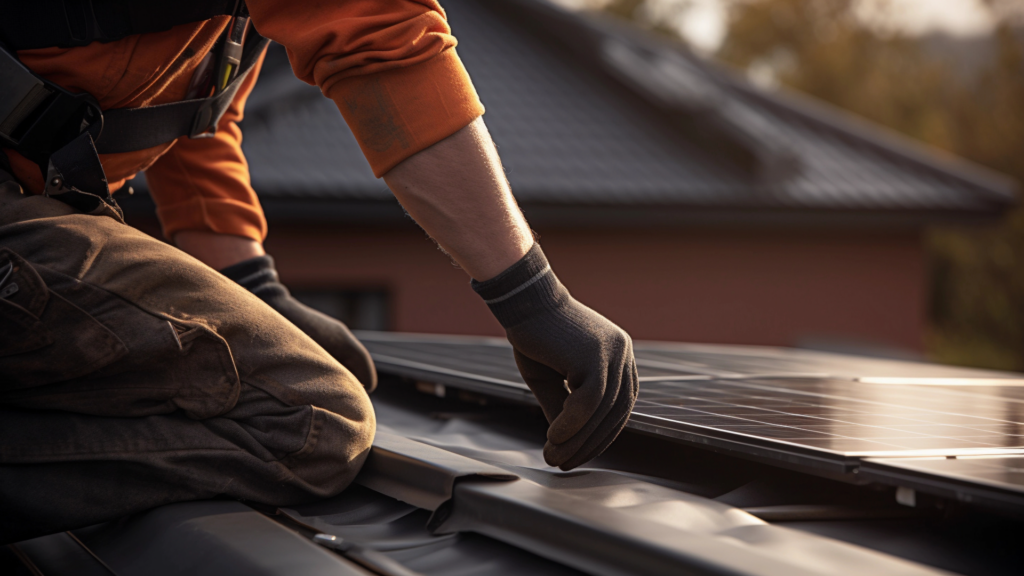
Funding is available to households under the government-backed ECO4 Scheme. While there are no grants solely for solar panels, it is possible to get funding when taking a combined package of both solar panels and a heat pump.
Grants for solar panels will help households with low energy efficiency homes who are considered likely to face financial difficulties heating their homes.
The changes to the ECO4 Scheme means that funding is available not just to those who are claiming benefits, as was previously the case under ECO3. Under ECO4, 50% of measures will be delivered under LA Flex, meaning more help for those not on benefits, but who are still classed as a ‘low income’ household.
Those who install solar panels could benefit from the Smart Export Guarantee (SEG) which came into effect in 2020 and enables households to receive payments for the surplus energy they export back to the grid. All homeowners with standard solar panel systems are eligible for payments under the SEG.
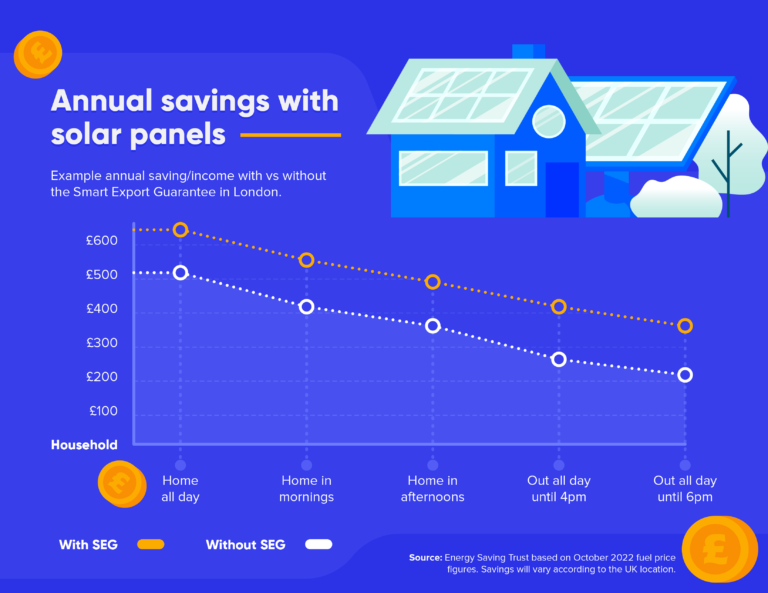
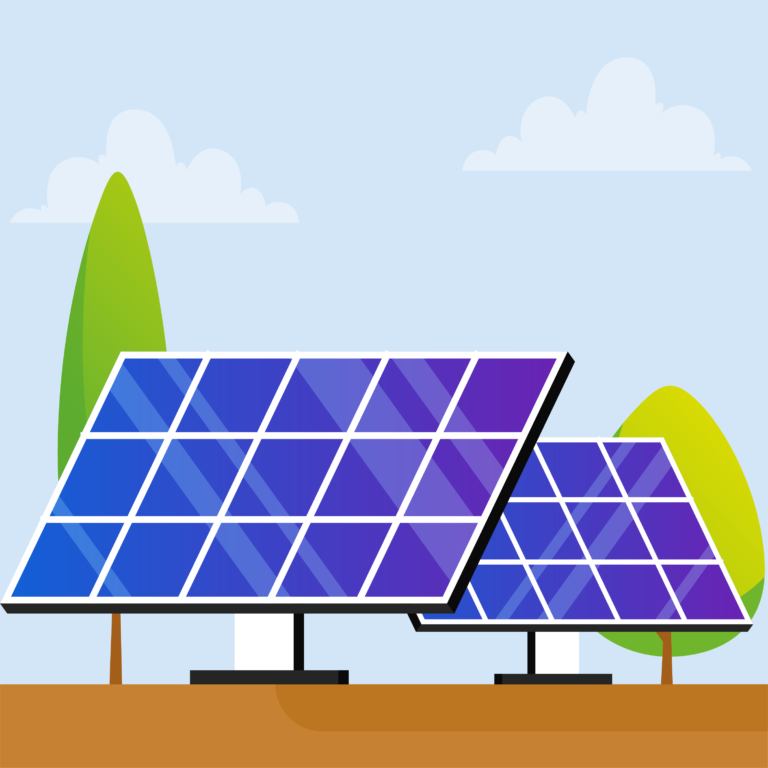
The Energy Company Obligation scheme transitioned from ECO3 to ECO4 in Summer 2022. The ECO4 scheme, which is due to run until the end of March 2026, allows eligible households to apply to have a combined solar panel and heat pump bundle installed, with the possibility of them being fully-funded.
The Energy Companies Obligations (ECO) scheme is backed by the UK government and obligates the largest energy suppliers – including npower, E.ON and British Gas, SSE, EDF, Scottish Power and others – to help households improve their energy efficiency and reduce their energy bills.
You don’t need to be receiving benefits!
Find out more information if one of these applies to you:
To be eligible ECO4 funding and receive a solar panel installation grant, you must receive at least one of the following:
You may also qualify if your household income is below a certain threshold AND you are in receipt of Child benefits. These thresholds vary depending on how many children you have and whether you are a single or two-parent household.
Single-parent households:
Two-parent households:
Alternatively, you may qualify under LA Flex rules which are outlined below. If you think you may be eligible for the ECO scheme, you can apply through your energy supplier directly or click here to find out more.
The ECO4 scheme is a government initiative that sees funding provided by energy suppliers to households to help them improve the energy efficiency of homes. The scheme is open to all homeowners in the UK regardless of whether they own or rent their property.
Under the scheme, eligible households can receive free or discounted insulation and solar panels. The level of support you receive will depend on your energy supplier and your circumstances.
ECO was first introduced in 2013 and has been updated several times since then. The most recent update, ECO4 differs from ECO3 in a few key areas:
Local Authority Flexible Eligibility (LA Flex), is part of the ECO scheme, and gives local authorities scope to widen the eligibility criteria for the ECO scheme so that more households will be able to benefit from solar grants.
The ‘flex’ aspect of the scheme means that local authorities are able to have greater flexibility to tailor qualifying requirements specific to their respective areas and the needs of the people living in that area. This means more residents, not just those claiming benefits, can qualify for solar grants and other types of eco funding.
Being based on factors like low income, health, age, or location, means that councils are able to better target grants at people who most need it, either because they are living in fuel poverty (i.e. spending at least 10% of their net income on heating their home) or at significant risk of living in a cold home during winter (including those with cardiovascular or respiratory conditions, disabilities, mental health conditions and learning disabilities, aged 65+, with young children under 5, or pregnant.)
Households that have a property with EPC rating of E, F or G who meet any two of the following criteria could also be eligible for a solar grant under LA Flex:
LA Flex has been expanded under ECO4 so that energy suppliers will be able to provide up to 50% of their obligation via LA Flex, as opposed to the 25% it was previously under ECO3. To achieve funding under LA Flex, the local authority need to send a signed declaration to the relevant energy company confirming eligibility on behalf of the customer. This declaration will be presented to accredited ECO installers for the grant to be awarded.
The Smart Export Guarantee (SEG) is a government initiative that provides payments to people who generate their own renewable electricity. It replaced the previous Feed-In Tariff Scheme in 2020.
Under the scheme, eligible households can receive payments for the electricity they generate from renewable sources such as solar panels. The level of payment depends on the type of renewable energy system you have, how much electricity you generate and your energy supplier.
The scheme is open to anyone with solar panels or other eligible renewable energy systems. You will be paid for the surplus electricity you generate and export to the grid.
To be eligible for the Smart Export Guarantee, you must have:
The Energy Saving Trust estimates solar homes could get paid up to £370 per year for any excess energy that is generated and exported to the grid. It should be noted that SEG tariffs can differ widely between energy suppliers and the amount received for each kilowatt hour (kWh) of electricity generated from solar panels, but not used. It is therefore recommended that you shop around for the best imported electric rates.
Annual income generated through SEG payment will depend on how much time the household is at home during the day, and therefore consuming or not consuming the electricity generated through solar panels.
| Household Behaviour | Estimated Annual Income from SEG payments |
| Home all day | £230 |
| Home in mornings | £260 |
| Home in afternoons | £280 |
| Out all day until 4pm | £310 |
| Out all day | £330 |
Figures based on fuel prices as of July 2024 and calculated by subtracting the ‘Without SEG’ annual savings from the ‘With SEG’ annual savings amounts estimated by the Energy Saving Trust.
To apply for the SEG scheme, you will need to contact your energy supplier directly who will be able to advise you on the application process or click here to find out more.
With a grant, you can get a full solar system and insulation including:
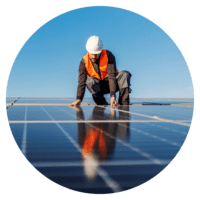
1. Solar Panels
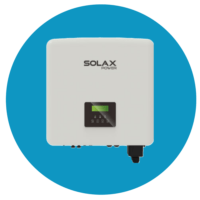
2. Home Solar Battery
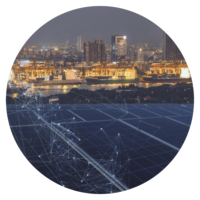
3. Trade Energy for Cash
APPLY ONLINE: Let’s See If You Qualify for a Solar Panel Grant
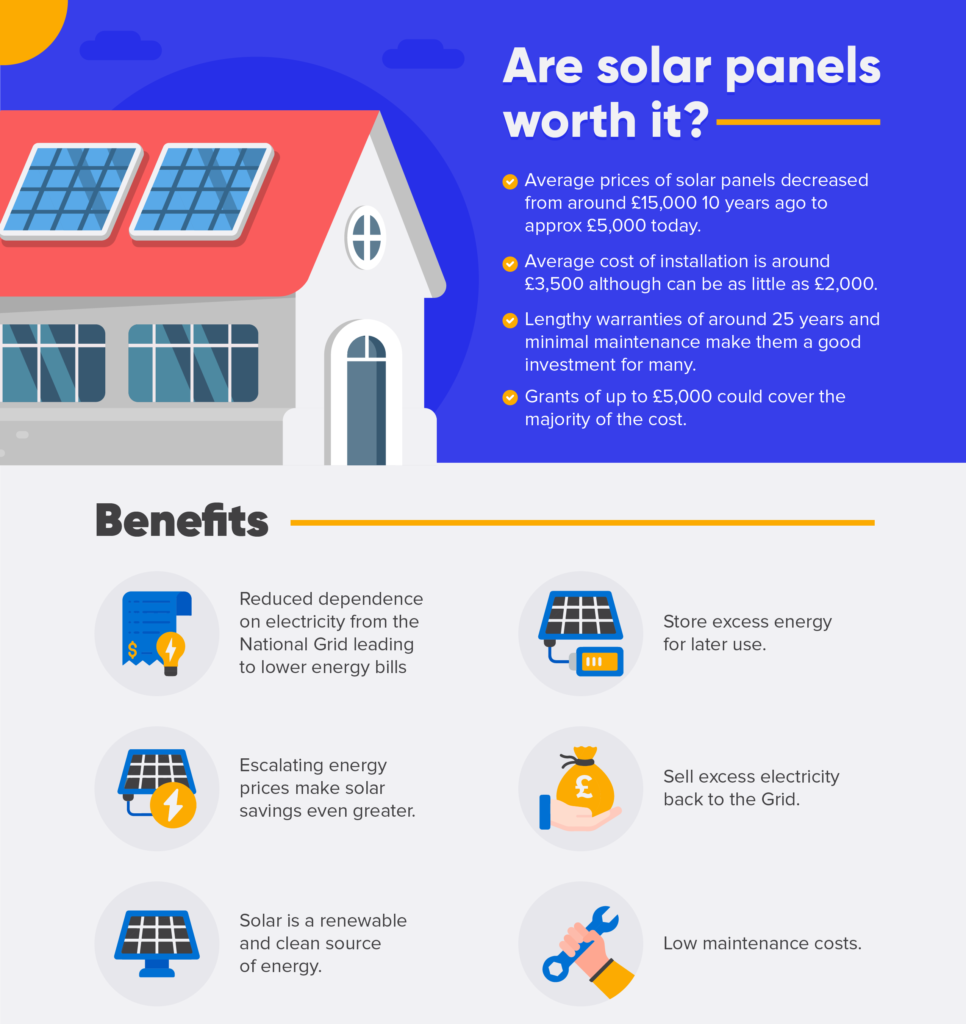
You don’t need to be receiving benefits!
Solar PV panels consist of multiple cells made from semiconducting materials, which when light shines upon them, electricity is created.
The electricity created can be used, stored in a battery, or exported to the grid to receive money from the energy companies as part of the Smart Export Guarantee.
Solar panels require light, not direct sunlight, in order to function, so will continue to produce electricity on gloomy days, even if to a somewhat lesser extent.
Why choose solar over traditional energy?
Fossil fuels are rapidly increasing in cost, making them a more costly option for both your pocket and the environment.
Solar is a much greener alternative as it is a renewable form of energy and can be used to provide electricity and hot water for the home.
Did you know…
Solar panels are still able generate electricity on gloomy days. They require light not direct sunlight in order to function. The brighter the light is, the higher their electricity output.
Planning permission is not usually required for solar panels. The exceptions are if your property has a flat roof or is a listed building or in a conservation area. In these circumstances, approval might be required from your local authority building control team.
Solar panels that are professionally installed should not make any noise as there are no moving parts within the panels themselves. The inverter, which is usually attached to the side of the property or in a cool place such as a garage or utility room, and converts the current from DC to AC, may make some noise but is likely to be a quiet humming noise that is unlikely to be particularly noticeable. Any signs of loud noise would suggest that some maintenance is required. You should take help from an expert solar panel installer in this case.
The scheme aims to help low income households improve their home energy efficiency and any grants are non-repayable. Those eligible for a grant will either get a grant towards the installation of a solar PV system in their home. In some cases a contribution may be required towards the cost of the installation, but this will be made clear from the outset, following a free assessment at your home.
For residential properties, the installation of solar panels should take 1 day, though slightly larger properties with larger panels might take up to 2 days. Commercial installations can take longer, depending on the site and specific requirements.
It is worth noting that it doesn’t have to be sunny to generate electricity and that electricity will still be produced on dull days, admittedly at a lower rate. When you are not producing enough electricity to meet your demand, your home just draws electricity from the grid in the normal way, as you did prior to solar being installed.
Solar panels should be expected to last between 20-25 years, but some manufacturers suggest in some instances this could be as much as 40 years. Over time efficiency can fall (reducing by about 15% over their lifetime) and inverters may need to be replaced, but in the main, the life and performance of solar panels is a lengthy one.
No, the Green Deal was launched in 2013 but was withdrawn in 2015 after it failed to take off. The government has since reintroduced a similar scheme called the Energy Company Obligation (ECO).
The average domestic solar panel system (3.5kW) costs in the region of £5,500 and it is possible that you could qualify for a grant that fully covers or part covers this, meaning the cost to you is zero or very small. Much will depend on the size and type of solar PV system your home will require.
A 3.5kW system will be sufficient for the majority of households, but if you require a larger output, this will increase the cost. The addition of a solar battery will also add to the cost.
A 4kW solar system would cost around £6,000-£8,000; a 5kW system £8,000-£9,000; and a 6kW system around £9,000-£11,000. If you were able to qualify for the typical grant amount of £5,000, you would be expected to make up the difference yourself.
The good news is that energy efficiency measures and energy saving materials, such as solar panels and solar batteries, are subject to 0% VAT until March 2027. This makes solar a much more affordable option, regardless of whether you qualify for a free solar panel grant or not.
Find out how much your home could save with free funding and by going green.
Saving Your Pocket & The Planet
Low Maintenance & Servicing Costs
Enquire today and find out how much in Government funding you could get…
See how much you could save

The default source of electricity has traditionally been from the national grid, generated from a range of fossil fuels, including coal, natural gas and oil.
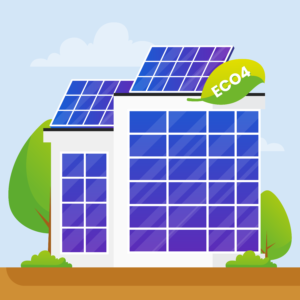
In 2013, a scheme was introduced to the public called the Energy Company Obligation (ECO Scheme). The Energy Company Obligation put the responsibility of improving
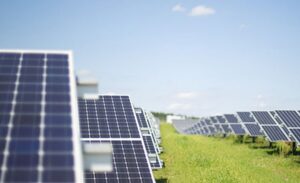
Installing solar panels isn’t necessarily cheap but with grants available, and now 0% VAT payable on professional installations, solar becomes a much more affordable option.
*Annual solar saving/income with the Smart Export Guarantee in for a property in London where the householder is home all day (according to the Energy Saving Trust based on July 2024 fuel prices)
Solar Grants UK is a trading style of Lead Pronto Ltd, a Company registered in England & Wales, company number 11563815.
£10,000 in Free Grants to Install Solar in Your Home